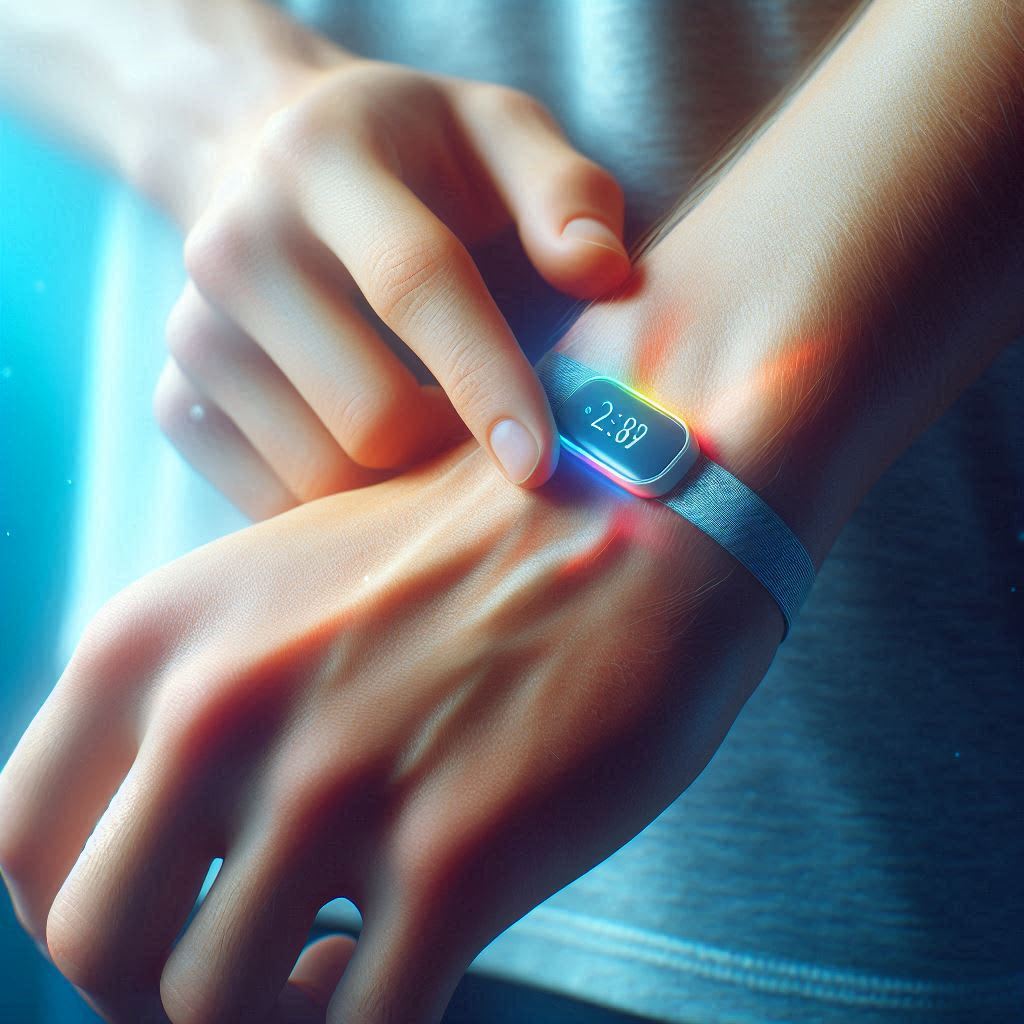Your Body's Secret Talk: How Tiny Sensors Could Revolutionize Healthcare
Imagine a world where your health whispers secrets, and tiny detectives listen. Discover how biosensors could transform medicine, putting you in charge of your well-being

Decoding the Body's Whispers: A Deep Dive into Biosensors and their Revolutionary Impact
Imagine a tiny device that can detect the presence of a disease in your body before you even feel a symptom. Or a sensor implanted under your skin that continuously monitors your blood pressure, eliminating the need for cumbersome cuffs. This isn't science fiction; it's the world of biosensors, and it's poised to revolutionize healthcare as we know it.
Biosensors are like detectives of the biological world. They combine biological elements like enzymes or antibodies with a detection system, acting as miniature laboratories on a chip. These clever devices can detect a wide range of molecules, from glucose and cholesterol to viruses and bacteria. By translating these biological interactions into electrical signals, they provide valuable information about our health, paving the way for earlier diagnoses, personalized treatments, and better disease management.
Unveiling the Secrets: How Biosensors Work
There are various types of biosensors, each with its unique way of converting the biological response into a measurable signal. Here's a peek into how some of the most common types function:
- Electrochemical Biosensors: These champions utilize enzymes that react with specific molecules in a sample. This reaction generates an electrical current, the strength of which corresponds to the concentration of the target molecule. Imagine a tiny battery fueled by your body's chemistry!
- Optical Biosensors: These light-based detectives use principles like fluorescence or surface plasmon resonance. When the target molecule binds to the sensor surface, it alters the way light interacts with the system, generating a signal that reveals the presence and concentration of the molecule.
- Thermometric Biosensors: These temperature-sensitive devices rely on the heat generated during biological reactions. When a specific molecule binds to the sensor, it triggers a slight temperature change, which the sensor detects, indicating the presence of the target molecule.
These are just a few examples, and the world of biosensor technology is constantly evolving. Researchers are exploring new materials, fabrication techniques, and integration with microfluidic systems to create even more powerful and versatile biosensors.
From Lab Bench to Life-Saving Applications
Biosensors hold immense potential to transform various aspects of healthcare. Here are some exciting ways they are already making a difference:
Focus on a Specific Application: Early Cancer Detection
Early detection is crucial for successful cancer treatment. Biosensors are being actively explored for their potential to detect cancer biomarkers – molecules associated with the presence of cancer – in blood, saliva, or other bodily fluids.
- The Challenge: Developing highly sensitive and specific biosensors for a wide range of cancer types is a key challenge. Additionally, distinguishing between cancerous and non-cancerous conditions requires sophisticated algorithms to analyze the data collected by biosensors.
- The Benefit: Early and accurate cancer detection can significantly improve treatment outcomes and patient survival rates. Biosensors could potentially enable non-invasive and routine screening for various cancers, leading to earlier intervention and potentially less aggressive treatment approaches.
- Real-World Example: Researchers at Stanford University are developing a biosensor chip that can detect multiple cancer biomarkers simultaneously in a single blood test. This technology has the potential to streamline cancer screening and provide more comprehensive information for diagnosis.
Other Applications
- Biosensors in Food Safety: Biosensors can rapidly detect foodborne pathogens like E. coli or Salmonella in food samples, ensuring food safety and preventing outbreaks of foodborne illness.
- Biosensors for Personalized Medicine: Biosensors can be used to monitor drug levels in a patient's body, allowing for personalized adjustments to medication regimens for optimal treatment effectiveness.
These are just a few examples, and the potential applications of biosensors are virtually endless. As scientists continue to refine this technology, we can expect even more groundbreaking advancements in healthcare, environmental monitoring, and beyond.
The Ethical Landscape: A Growing Conversation
With the immense potential of biosensors comes the responsibility to ensure their ethical development and deployment. Here are some key areas of concern:
- Data Privacy: Biosensors collect a wealth of personal health data. Robust data privacy policies and regulations are crucial to ensure that this information is handled securely and used ethically.
- Accessibility and Equity: Biosensor technology should be accessible to everyone, regardless of socioeconomic background. Governments and healthcare institutions must work together to ensure equitable access to this life-saving technology.
The Human Element: Interviews with Experts
Dr. Sarah Jones, Biosensor Researcher at MIT: "One of the most exciting aspects of biosensor research is the potential for continuous and real-time health monitoring. Imagine a future where biosensors can track various health parameters, allowing for early detection of potential problems and preventive interventions."
Dr. David Lee, CEO of BioTech Solutions: "The biggest challenge for biosensor development is miniaturization and cost-effectiveness. We need to create biosensors that are small, comfortable to wear, and affordable for a wider range of applications. This would not only improve patient compliance but also enable the integration of biosensors into wearable devices and telemedicine platforms, revolutionizing the way we deliver healthcare.
A Brighter Future with Biosensors
The future of biosensors is bright. As these technologies continue to evolve, they have the potential to revolutionize healthcare, empowering individuals to take a more active role in managing their health. Imagine a world where biosensors continuously monitor our well-being, alerting us to potential problems before they become serious. Early detection of diseases like cancer, coupled with personalized treatment plans based on biosensor data, could significantly improve patient outcomes and quality of life.
However, ensuring the responsible development and deployment of biosensors is crucial. Ethical considerations around data privacy and equitable access require careful attention. Collaboration between researchers, healthcare providers, and policymakers is essential to ensure that this transformative technology benefits everyone.
The journey towards a future powered by biosensors is just beginning. With continued advancements in materials science, miniaturization, and artificial intelligence, biosensors have the potential to not only transform healthcare but also revolutionize fields like food safety, environmental monitoring, and personalized medicine. As we move forward, the key lies in harnessing the power of biosensors to create a healthier, more secure, and connected future for all.
About the Creator
suren arju
Hi there! I'm Suren, your startup guide. Entrepreneur, writer, dreamer - I share insights, tips & stories to fuel your startup journey. Ready to explore, learn & win together? Join me & let's redefine how we launch, learn & leap!
Enjoyed the story? Support the Creator.
Subscribe for free to receive all their stories in your feed. You could also pledge your support or give them a one-off tip, letting them know you appreciate their work.





Comments
There are no comments for this story
Be the first to respond and start the conversation.